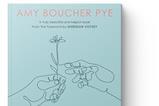What can a 14th century mystic teach us today? A new book promises to further unpack Julian of Norwich’s classic work Revelations of Divine Love and its relevance to modern readers
![]()
Over 700 years have passed since Julian of Norwich died, yet interest in her writings and in the character of this unique and deeply spiritual woman, is enjoying a resurgence.
Two fictional biographies, fleshed out from the little we can be sure of, were published in 2023 and now in this new book, All Shall Be Well: Visions of Salvation with Julian of Norwich (BRF Ministries), Emma Pennington aims to encourage readers to enjoy a deeper understanding of the visions she recorded and particularly the meaning and interpretation of her famous phrase ‘All shall be well’.
Julian has the distinction of being the author of the earliest surviving book in English written by a woman. As a young adult she was stricken with a serious illness and not expected to live, but after being given the Last Rites she had 16 visions of Jesus, which she named her ‘showings’. These she recorded in two forms; the first shorter version probably written quite recently after the event. The longer version, written later, is where she both edits the text but also elaborates on her first thoughts in more detail, looking deeply into the theological meaning of her visions and what they reveal to her about the love of Jesus. It has been speculated that this may have been as a spiritual discipline for herself and not ever intended for a wider readership. Fortunately copies made of both versions survive, the longer one being published under the title Revelations of Divine Love.
Imagery used in her writing suggests that Julian may at one time have been a wife and mother, with the strong possibility that her family were victims of one of the plagues which decimated the population of England in the 14th century. By the time of writing her longer version, however, she had become an ‘anchorite’, someone who withdrew from ordinary society, living a solitary life in a small room or cell, attached to a church. This way of life had become popular in the 14th century, with, Pennington tells us, 24 anchorites attached to churches in Norwich alone! This role was not undertaken lightly and was only done with the full support of the Church hierarchy. Anchorites were expected both to accept spiritual direction and dispense it to others, and it seems Julian acquired a reputation for her wise and godly advice.
Emma Pennington explains the cultural and religious background to Julian’s life, how her role as an anchorite focused on prayer and worship affected her Christian faith, and how she interpreted the words of Jesus to her in her ‘showings’. The author concentrates on the latter seven of these revelations where Julian’s writing allows the reader to contemplate their own personal relationship with Jesus and the meaning of salvation.
These final seven give the framework for the words spoken by Jesus in her 13th revelation, that ‘All shall be well’. In practical terms, ‘all’ was not always well for Julian nor is it for Christians today, yet she came to an understanding of suffering that is equally relevant in the 21st Century as it was then.

Each of the chapters dealing with these later revelations begins with a helpful introduction before digging deeply into the text and how it can be understood, both in the context of Julian’s life and times and to a modern reader. Pennington’s stated aim is to help unfold Julian’s words to us so that we may: “return to her words with new eyes and deeper understanding.”
The author is quite clearly an expert on Julian’s teaching but her in-depth knowledge is conveyed with an overly academic tone in places. The extracts from the text, though drawing on a modern translation, are not always easy to understand but perhaps that is indicative of Julian’s convoluted style which Pennington aims to unpick for us.
The book will definitely be appreciated by fellow scholars and Julian enthusiasts but may be less accessible to those not already familiar with the writings. It is probably best read by those who have some awareness of the contents of the Revelation of Divine Love already, which they want to deepen and apply on a personal level.
This application is the book’s strength - Pennington’s personal references along with the exercises and individual or group questions at the end of each chapter under the heading ‘Going Deeper’, will guide readers in finding their own response to the topics Julian grappled with all those years ago and which still have the power to speak to us today.
All Shall Be Well: Visions of salvation with Julian of Norwich by Emma Pennington is out now







































No comments yet